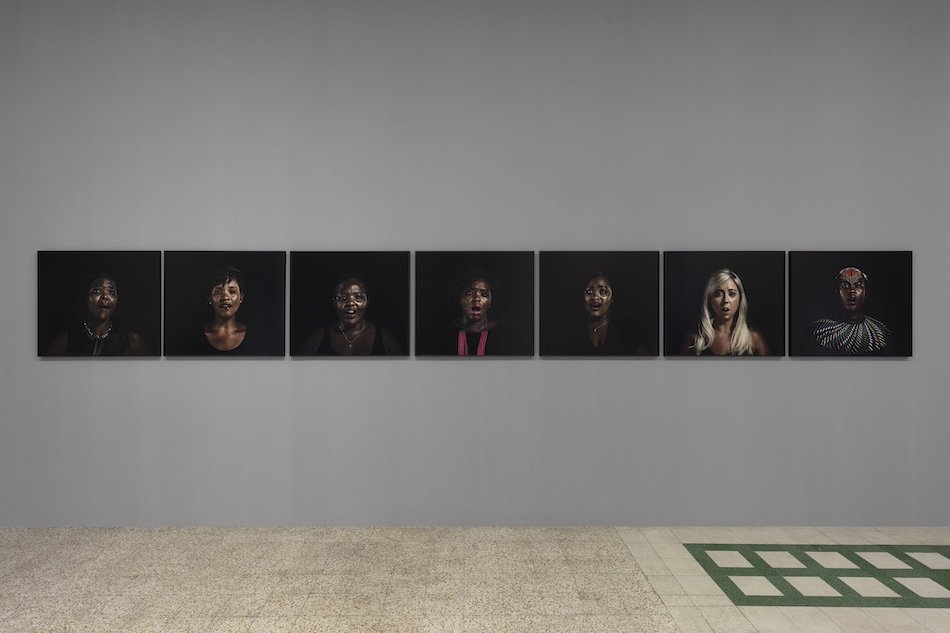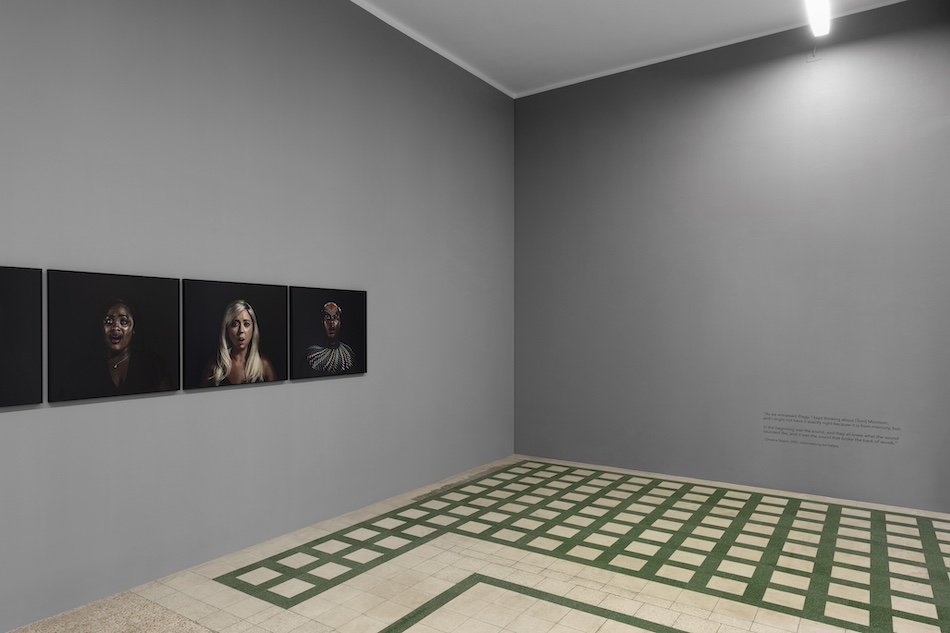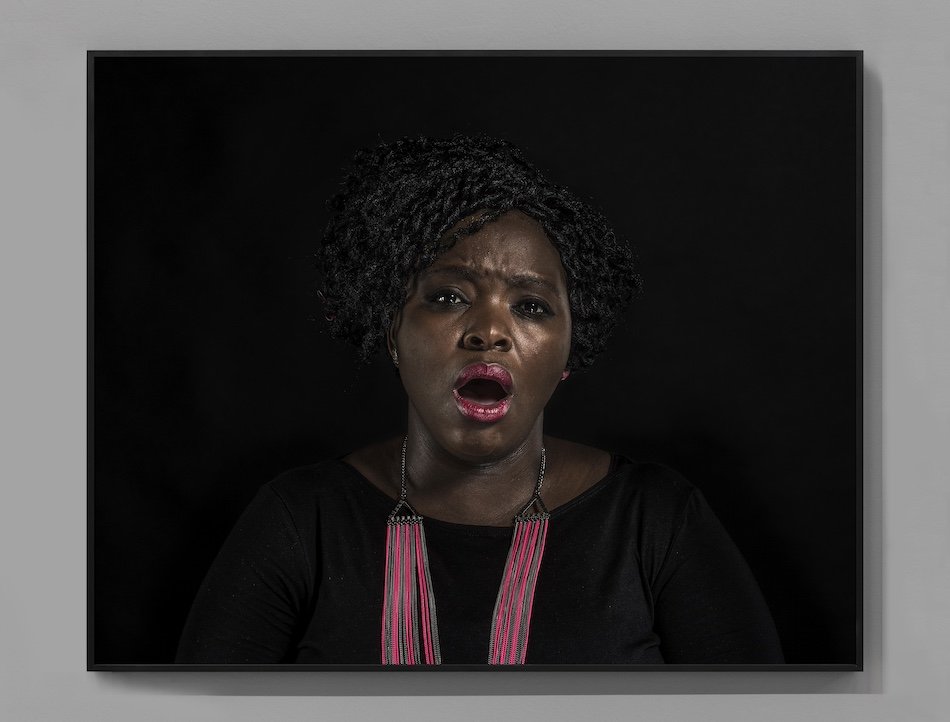Elegy - Noluvo Swelindawo (2017), 70x80cm, pigment ink on cotton baryta, installation views, Galleria Raffaella Cortese (2024)
ELEGY - NOLUVO SWELINDAWO
A tribute by Gabrielle Goliath
Noluvo 'Vovo' Swelindawo lived courageously and loved courageously. As an openly lesbian couple, Noluvo and Nqabisa Mkatali lived together in Driftsands, near Khayelitsha, and despite their ‘difference’ were welcomed by many in the community. But not all.
On Friday the 2nd of December, 2016, Noluvo was assaulted by Sigcine Mdani, who stamped on her head and repeatedly kicked her in the face. The following day, Noluvo was abducted from her home and murdered by Sigcine Mdani. Her body was found on Sunday the 3rd, dumped near the N2 highway. Nqabisa was also attacked and threatened, and following the murder of her partner was forced into hiding for a period.
Sigcine Mdani was sentenced to 18 years imprisonment, with Western Cape High Court Judge Derek Wille acknowledging that Noluvo was a victim not only of misogyny and femicide, but of gross intolerance - which is to say, of queerphobia.
In preparing for the ICA Live Art Festival, 2017, it was my hope to present an Elegy performance in commemoration of Noluvo. The investment of the festival in the city of Cape Town was a strong motivation for this, as a platform through which to enact an urgent, local and collective gesture of mourning. How do we begin to account for such loss? Not any loss, not loss in general, not loss as a statistical mean, but loss as particular, as the absent presence of a living body, a life lived, of love shared, of Noluvo Swelindawo?
How do we inhabit such loss? How do we sustain relational connection, emotional, ethical, spiritual investment? How do we show a solidarity that is other to the masked deflection of shared complicity and historical bearing that so regularly attends (and disavows) the work of commemoration? And how do we enact refusal? Refusal of the violence that seeks to erase black, brown, feminine and queer bodies. Refusal of the ‘normalcy’ that is patriarchy’s everyday, through which survivor narratives are routinely discredited and victims’ lives marked as politically inconsequential and humanly ungrievable. It is here, I believe, that collective mourning performs a deeply political work - a work of community, care and the insistent recognition (and yes celebration) of feminine life.
Nqabisa was present that night. Present to the performance, and in the sustained cry the performers held over the course of an hour, present to the absence of her beloved Noluvo. Nqabisa’s own cry was loud, piercing, heartbreaking, soul-splitting - and in that moment the only tribute she felt able to share.


